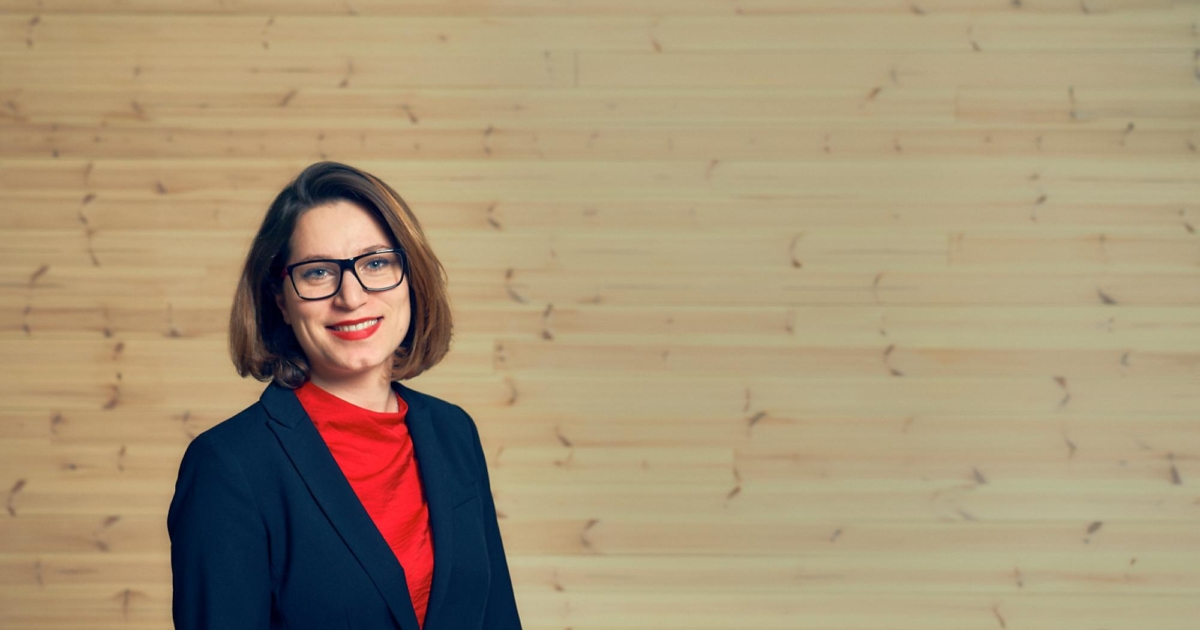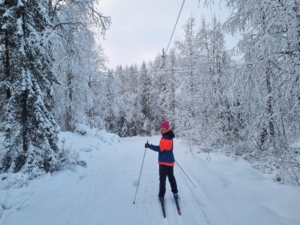PhD pathways: finding a professional home in Lapland

Sepideh Kiani, an Iranian with a PhD from the University of Oulu, navigated her way into the Finnish workmarket with support and encouragement. But finding employment as a foreigner in Finland can be challenging. In this series, we chat with international PhDs who have studied in Finland and whose career paths have taken them from academia to the private sector.
Finding employment as a foreigner in Finland is not always smooth sailing. Learning Finnish language takes effort, and some may find the language requirements too heavy and immigration procedures taxing. But companies are hiring more international talents than ever.
In 2022, almost 30 per cent of PhD graduates had an international background, according to Sivista’s report (Tohtorit työelämässä, 2023). The number has doubled in the past twelve years. In engineering, for instace, 44 per cent of teaching and research staff had an international background in 2022.
Additionally, PhD graduates are increasingly finding employment in the private sector. Most of this increase is happening with professionals with PhD’s in engineering, like Sepideh Kiani, who works as a Tailings Area Specialist at Boliden, a producer of high-tech metals.
From Iran to the north
Before immigrating to Finland, Kiani worked as a construction engineering in Iran. After gaining four years of experience in the field, she began to feel that her homeland was preventing her ability to live the life she desired.
– I wanted to be free and experience more in life. In Iran, the strict rules of the Islamic government take away the basic rights as a human, and especially as a woman – I felt like every day was a struggle. That’s why deciding to leave came easy for me, Kiani recounts.
Determined to make a change, she started to look for opportunities outside of Iran.
– Being a non-EU citizen, finances played a significant role in my decision-making. I sought for countries with free, high-quality education, and Finland came up. Back then, the tuition fees didn’t exist yet, she notes.
At the time, the only thing Kiani knew about Finland was Nokia. But during her research she found that Finland maintained high standards across various aspects of life. Motivated by what she had learned, Kiani decided to apply to several universities across the country.
– The application process was very easy and straightforward, like Finland! I got accepted into a few universities, ultimately opting for the University of Oulu due to its high ranking. Additionally, I believed that in the northern region, I could experience more authentic Finland.
In 2015, Kiani moved to Oulu and started her master’s degree in environmental engineering. Along with the several activities offered to students, Kiani found the university atmosphere very welcoming, open, and international.
– Coming to Oulu was one of the best decisions of my life. I have many great memories from my time at the university, she says.

Sepideh Kiani says some of her friends needed to accept odd jobs to sustain themselves after completing their master’s degree. As a foreigner in Finland, she considers herself lucky to have found a job during her PhD. Image: Sepideh Kiani
Employing international talent should be made easier
When it comes to applying for residence permits and settling in Finland, Kiani feels everything has worked out well for her. It wasn’t difficult to get a PhD position either, although the ‘stars were aligned’.
– The people in the Water, Energy and Environmental Engineering unit were really encouraging students to start a career in research. My PhD started with a project with the Natural Resources Institute Finland (Luke), and later, I continued my research at Boliden Kevitsa in Sodankylä. The project was about the application of passive treatment in mining effluent, Kiani explains.
Kiani believes that a PhD is a natural choice for many immigrants studying at Finnish universities since the environment is very open towards international talent. Moreover, finding other employment after a master’s degree can pose a challenge.
– Typically, language is the problem when trying to find work beyond the university setting. At Boliden, I’m required to read documentation in Finnish, which I can handle. But some of my friends haven’t been able to find work because of the language, although I’ve seen more immigrants getting hired in recent years than when I first arrived, she estimates.
Prior to securing her position at Boliden, she remembers getting coached by Daniel Valtakari from TEK, who helped her transition from academia to industry.
– First, I did get a lot of rejections, and it was mostly because of the language, which I understood since the positions required interactions with Finnish clients. Daniel from TEK helped with my CV and gave some good tips, which really made the difference, Kiani says.
Kiani feels Finland has been very generous with her in terms of services, opportunities, support – and love: she and her Finnish fiancé have been together for four years.
– Finland truly opened doors for my future in work and personal life. But not everyone has been as fortunate as I have been. That’s why I think employing international talents should be made easier, not harder, she concludes.
Main image: Sepideh Kiani, the University of Oulu
